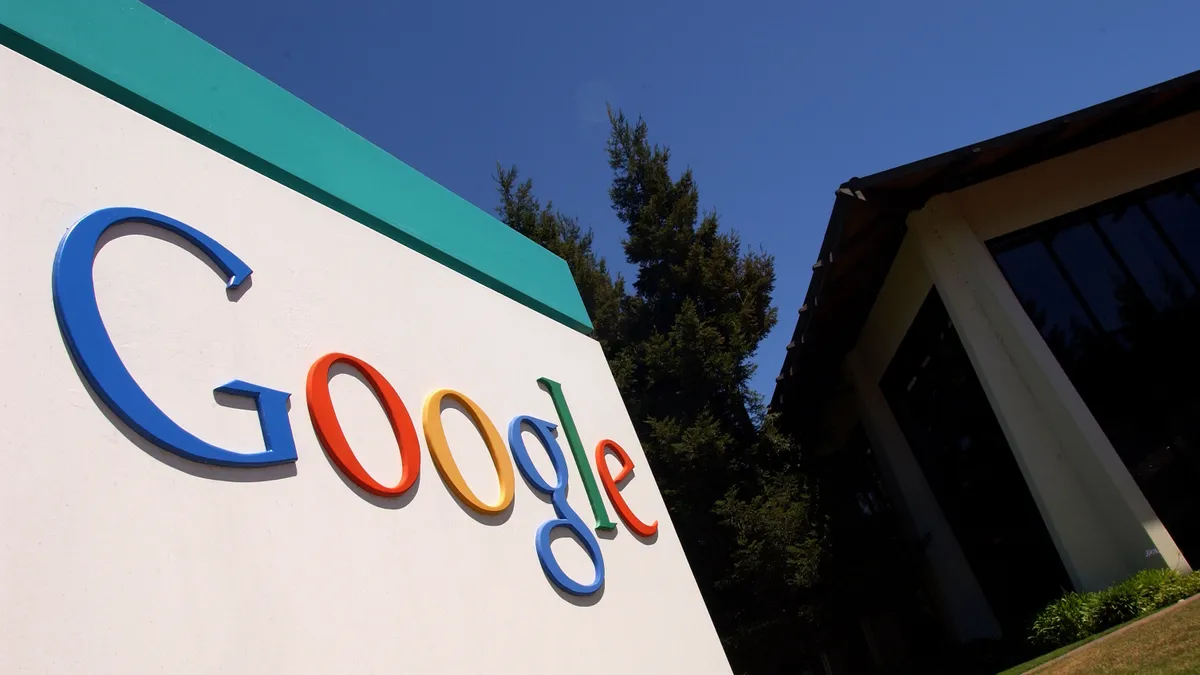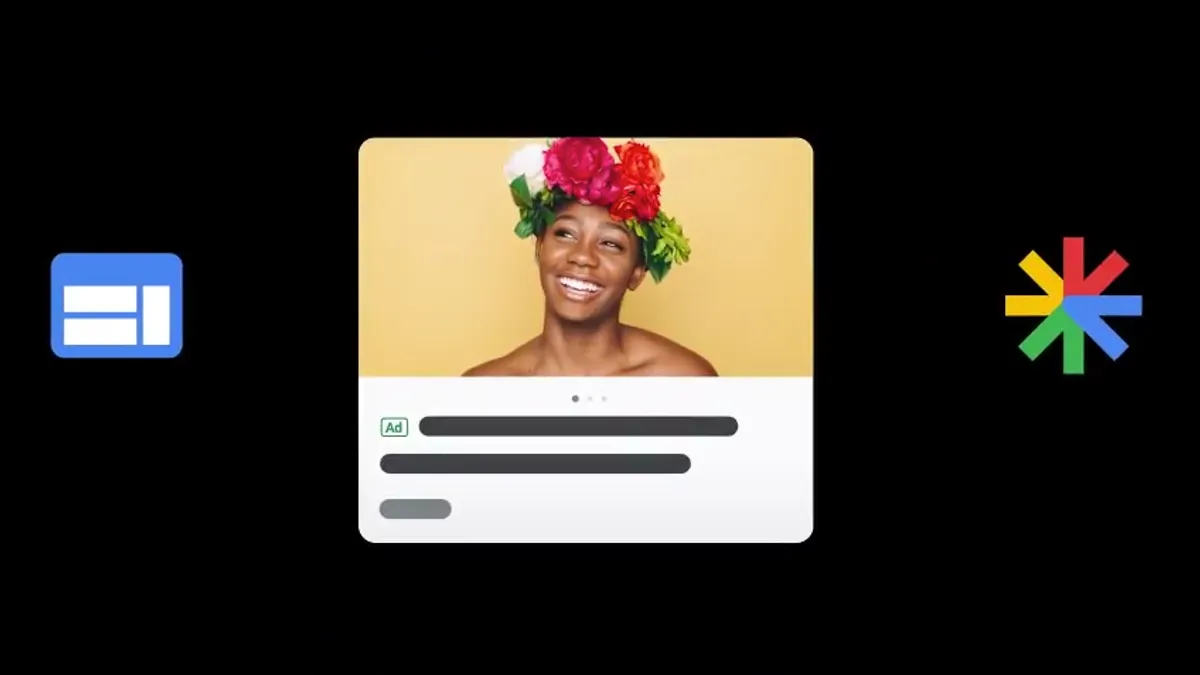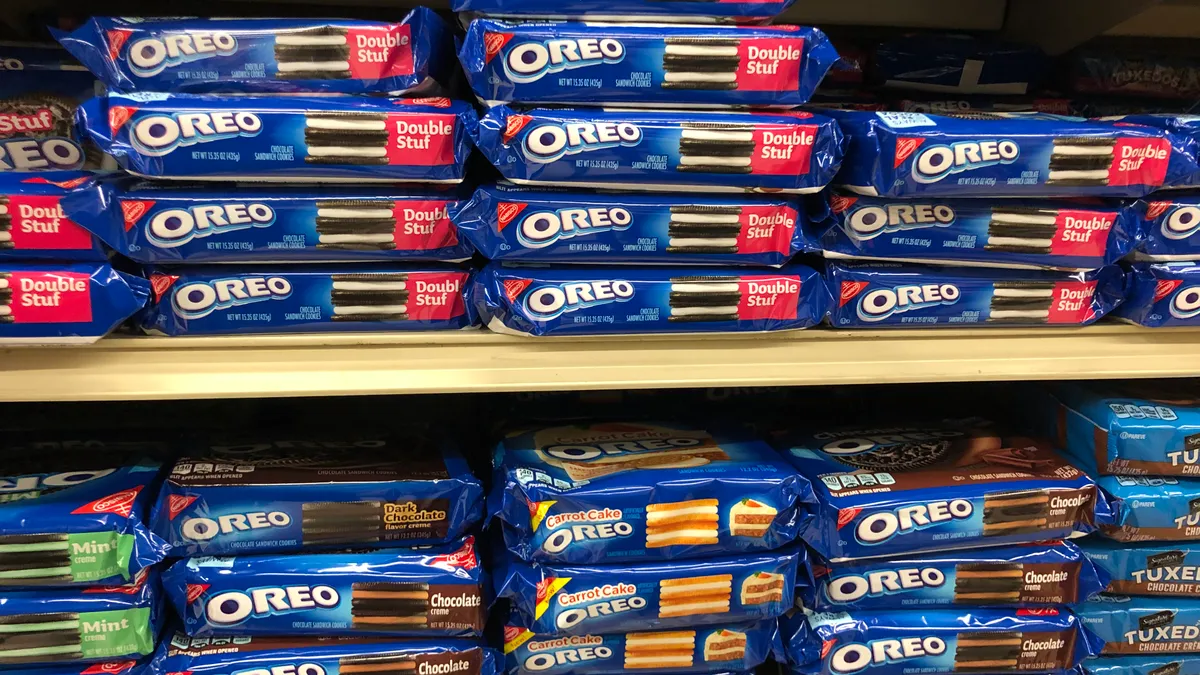Google stirred up the marketing world last week when it announced it intends to block third-party cookies in Chrome web browsers within two years. The move to wind back cookies isn't unprecedented in the tech sector or even particularly shocking coming from Google, which makes the fiery response to the development all the more remarkable — a potentially doomy signal for budget-crunched marketers and ad-tech firms focused on improving personalization and returning to growth.
"This was somewhat of an inevitable outcome, and I think most people were already expecting this to happen at some point," Tanzil Bukhari, DoubleVerify's managing director of EMEA, said in emailed comments to Marketing Dive.
"All the efforts from all the browser vendors over the past years has been to restrict cookies and user tracking in [an] ever-increasing degree," Bukhari, a former Google executive, wrote. "Whether it's browser companies or regulators, new changes in data privacy are downscaling third-party cookie tracking and collection."
A fiery response
It speaks to Google's massive share of the browser market — Chrome commands 70% of usage on desktop and 41% on mobile, according to Statista estimates — and outsized influence as the world's largest digital advertising platform that even a two-year deadline for deprecating third-party cookies is raising serious alarms.
"It would threaten to substantially disrupt much of the infrastructure of today's Internet without providing any viable alternative..."

Dan Jaffe / Dick O'Brien
ANA / The 4A's
The end result, skeptics warn, could be the upending of an internet ecosystem that many advertisers and their partners have relied on for years, along with the locking out of newer entrants in the space. Look no further than the response from the 4A's and the ANA, two of the largest advertising industry groups representing agencies and marketers, respectively:
"Google's decision to block third-party cookies in Chrome could have major competitive impacts for digital businesses, consumer services, and technological innovation," Dan Jaffe, group EVP of government relations at the ANA, and Dick O'Brien, who has the same title at the 4A's, said in a joint statement shared with Marketing Dive.
"It would threaten to substantially disrupt much of the infrastructure of today's internet without providing any viable alternative, and it may choke off the economic oxygen from advertising that startups and emerging companies need to survive," they wrote, while acknowledging they are open to collaborating with Google on addressing their concerns.
Compounding pressures
Cookies have been an essential pillar of online ad targeting, collecting small bits of consumer information to inform marketers and publishers' campaigns. But a harsher spotlight on data privacy in the wake of scandals like Cambridge Analytica has resulted in tighter regulations regarding how personal information is collected and used online. This, in turn, has caused a radical shift in marketing away from third-party data aggregation and toward a focus on first-party data.
Apple's Safari and Mozilla's Firefox browsers have previously deprecated or restricted ad-tracking software, including cookies, and were similarly met with negative industry response. Google in August revealed a commitment to building what it bills as a new "privacy sandbox" that intends to give users more choice and control over how their personal information is leveraged for ad-targeting purposes — an ambitious initiative that, coupled with the prior moves from Apple and Mozilla, sets up a natural runway to killing off third-party cookies.
Now that the decision for Chrome has a ticking deadline, marketers, agencies and ad-tech vendors have a clear sense of when a key tool in their kit will basically disappear. Recent history could help gauge the repercussions of this.
"The sandbox runoff will rearrange the deck chairs that [ad-tech] providers and agencies sit on."

Matt Keiser
LiveIntent, founder and CEO
After the Cambridge Analytica controversy broke, Facebook moved to shutter its Partner Program that helped advertisers target ads based on third-party data. There was an essentially overnight negative effect on ad-tech firms like Acxiom, which saw its stock market value plunge. The firm ended up selling its data marketing division to the agency conglomerate IPG just months later.
The health of the ad-tech sector has not generally improved since Facebook killed its Partner Program, as the category has in some corners seen venture capital dry up and an uptick in M&A as bigger tech players move in to buy valuable data assets and talent. It's not out of the question that those reverberations could be repeated with Google's winding down of third-party cookies in Chrome. One of the biggest issues cited by the 4A's and ANA is Google's lack of a clear alternative that advertisers can fall back on in the absence of cookies, which could leave some companies — including smaller firms and startups — floundering.
"This will have a major impact on the category. Whole industries within it have been built on cookies to do anything ranging from A/B tests to ad targeting," DoubleVerify's Bukhari wrote in his comments. "It will take significant engineering across the industry to adopt to these new changes and for companies to find alternative solutions to the same problems."
What Google gains
Barring the regulatory considerations Google is likely taking into account in its decision, there are other advantages the tech giant could glean from killing third-party cookies. Marketers have sounded a clear demand for better quality first-party data, and Google has a surfeit of user information in areas where its business is growing quickly, like YouTube.
"For Google, Google and YouTube is where the majority of their money comes from, and first-party cookies from YouTube will be unaffected by this change," Matt Keiser, founder and CEO of LiveIntent, previously told Marketing Dive via email.
The Chrome tweaks ultimately arrive as part of a long line of industry shifts that have seen big tech players start to shore up their online advertising strengths to extend growth and better compete with each other. While companies like Google and Facebook have always wielded a lot of control over the digital advertising market, now might be the time for smaller players working within their ecosystems to come together and devise a more sustainable future for their businesses, Keiser said.
"The agencies and ad-tech providers and those who have been mastering third-party data will lose their privileged position in this new world," Keiser said in his comments.
"You used to have the power if you sat across many publishers and brands like an agency or an ad-tech provider but now: it’s the first-party data owner who chooses whether to share," he added. "If they choose not to and don’t work together, Google, Facebook and Amazon will win. The sandbox runoff will rearrange the deck chairs that [ad-tech] providers and agencies sit on."

















